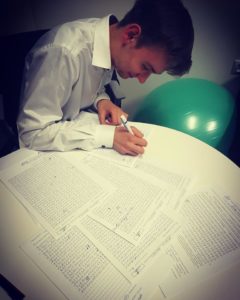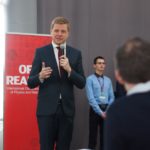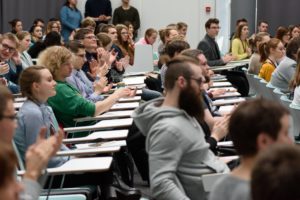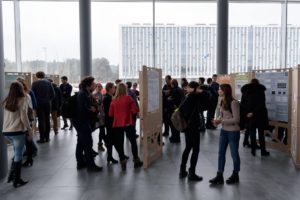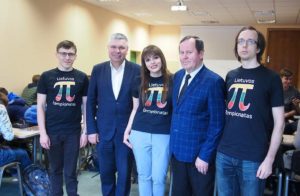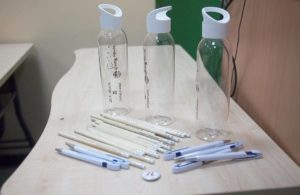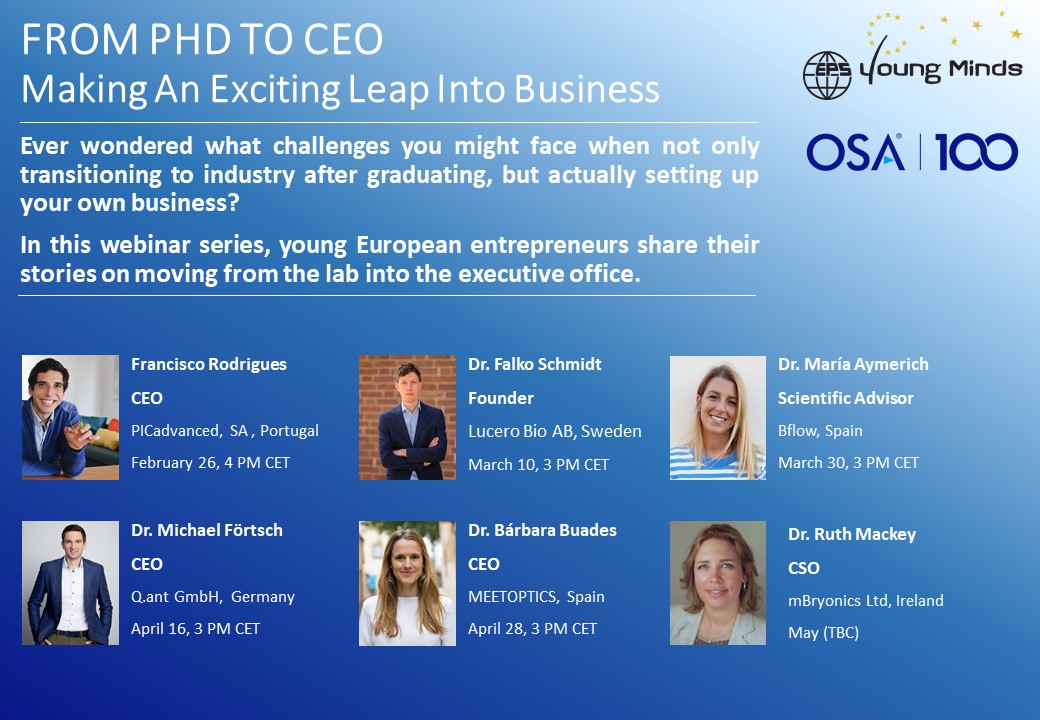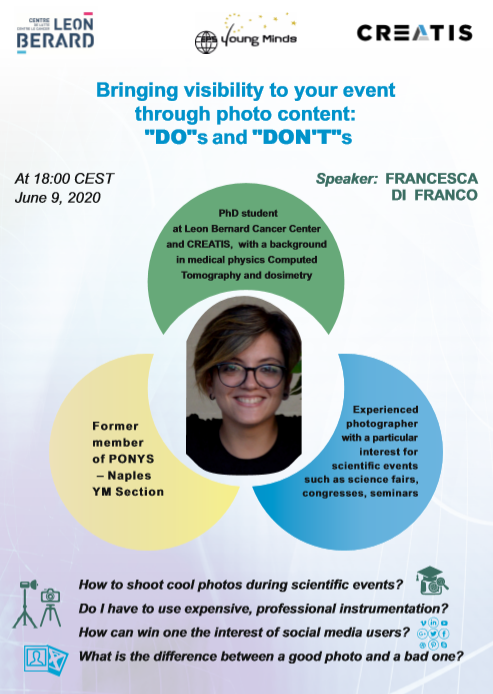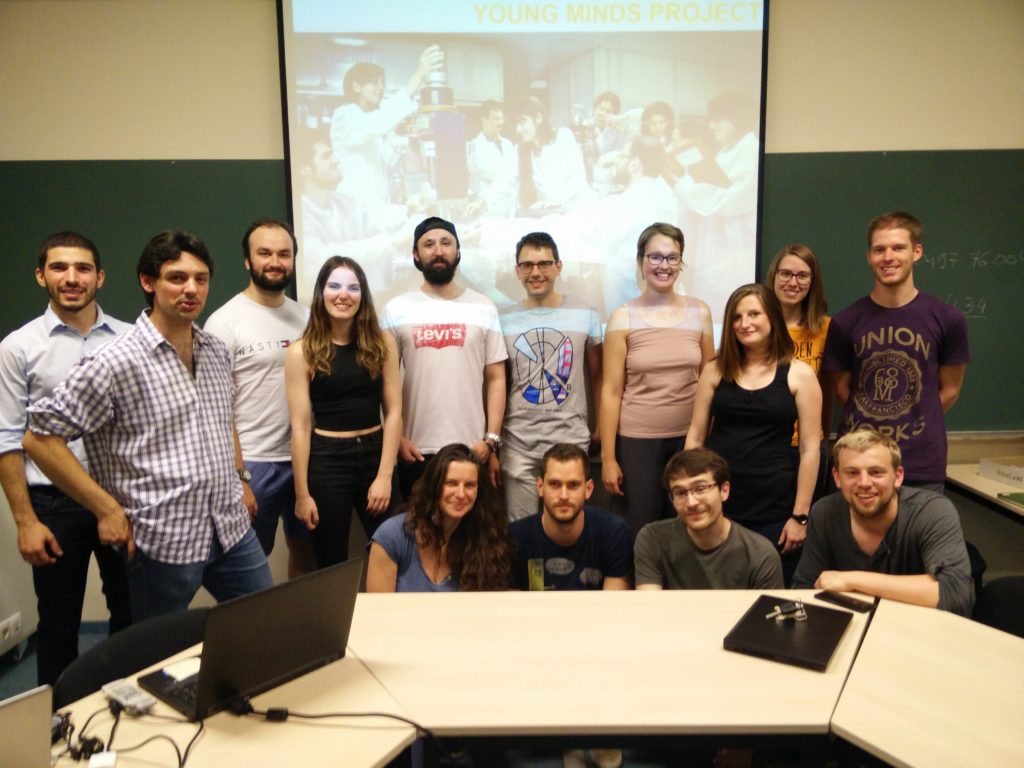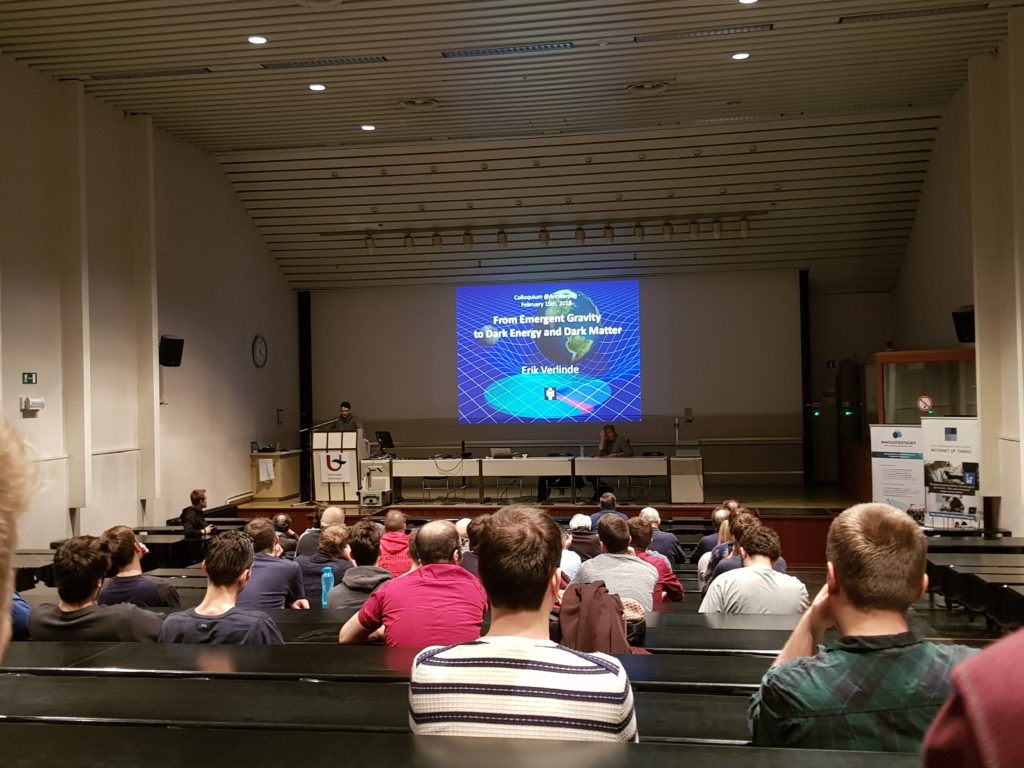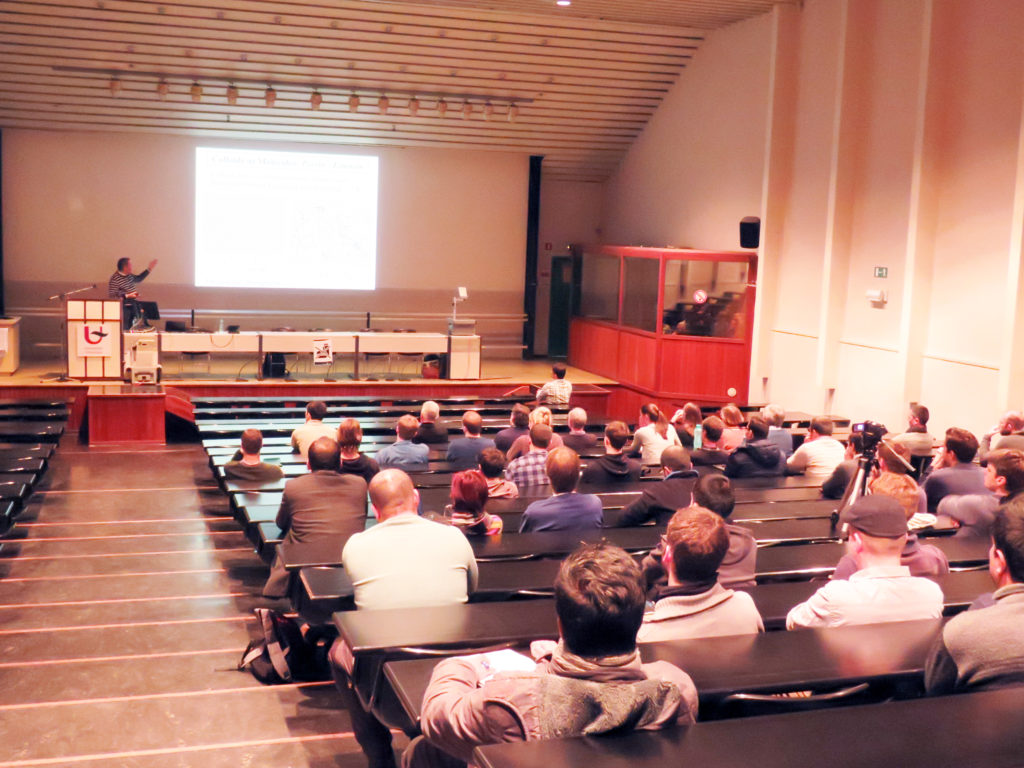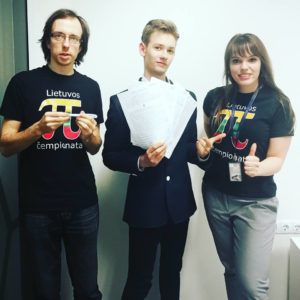
This year “Open Readings 2018” gathered above 306 presenters from more than 13 different countries: Norway, Sweden, Germany, Poland, Austria, Latvia, Serbia, Belarus, Czech Republic, Ukraine, Romania and Russia. Participants presented 11 different topics from Astrophysics and Computational Physics to Optoelectronics, Materials Science, Biomedicine, Chemistry, Nanoengineering etc.. Important statistics of participants: 96 Bachelor students, 97 Master students, 93 PhD students and 6 Postdocs. Through 4 days of the conference audience has listened to 56 oral presentations and watched over 250 poster presentations. This year we had equal ratio between female and male students. “Open Readings” invited 8 incredible lecturers from the World’s Top Scientists (USA, United Kingdom, Denmark, Belgium, Austria, Lithuania): Richard Brice Hoover – internationally known authority from NASA/Marshall Space Flight Center, Andrea Alù – inventor of novel waveguides, scattering devices and a cloaked sensor device (University of Texas at Austin), Peter Uhd Jepsen – leading scientist in the Terahertz Technologies & Biophotonics research group, Julija Krupič – developed a fascination with the way the brain maps the environment (University of Cambridge, Department of Physiology, Development and Neuroscience), Rasuolė Lukošė – is developing new sensing possibilities in graphene, Andrius Baltuška – alongside two colleagues, shared a world record for creating the shortest blip of light in history. They produced a flash of light lasting only 4.5 femtoseconds (0.000 000 000 000 004 5 seconds), Roel Baets – has led major cooperative research initiatives in silicon photonics in Europe, Audrius Alkauskas – works with point defects in 2D materials for quantum technologies.
“Open Readings 2018” took place from March 20-23rd, in the largest scientific research institution in Lithuania Center for Physical Sciences and Technology. It is the most advanced base for physical and chemical sciences, technology not only in Lithuania but in all Baltic States. It is currently headquartered in a state of the art four-stories building of 27 thousand square meters. Here not only the innovative science but also high technologies expedient for business and society needs are developed. European Physical Society Young Minds Section of Vilnius (EPS YM Vilnius) has contributed to organization of this conference. During the conference “11th Lithuanian Π day championship”, which gathered one hundred of students and University workers, was organized. This year Lithuania Guinness record was broken once again – Andrius Gegužis memorized 10 003 decimal places of Pi (He is 1st in Europe). Winner was writing over 15 hours! EPS YM Vilnius was invited to give an interview for mass media and national television. Lithuanian community has heard about our section. We hope to continue this tradition! Further science popularization is needed.
